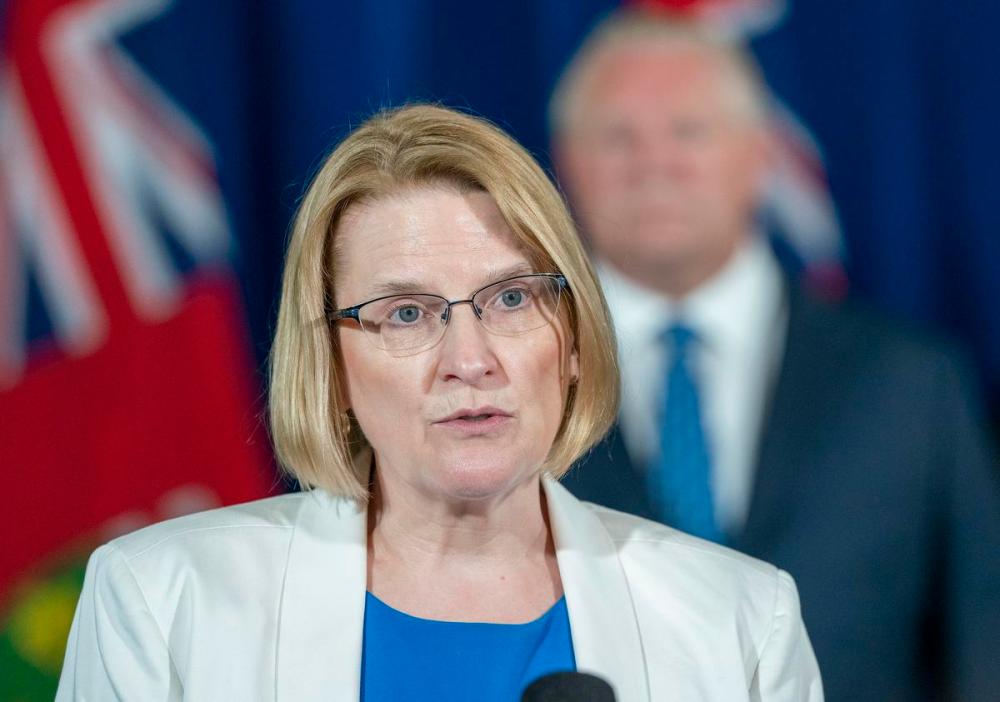Ontario appeals to Ottawa for military and Red Cross help as hospitals fill with COVID-19 patients
Advertisement
Read this article for free:
or
Already have an account? Log in here »
To continue reading, please subscribe:
Monthly Digital Subscription
$0 for the first 4 weeks*
- Enjoy unlimited reading on winnipegfreepress.com
- Read the E-Edition, our digital replica newspaper
- Access News Break, our award-winning app
- Play interactive puzzles
*No charge for 4 weeks then price increases to the regular rate of $19.00 plus GST every four weeks. Offer available to new and qualified returning subscribers only. Cancel any time.
Monthly Digital Subscription
$4.75/week*
- Enjoy unlimited reading on winnipegfreepress.com
- Read the E-Edition, our digital replica newspaper
- Access News Break, our award-winning app
- Play interactive puzzles
*Billed as $19 plus GST every four weeks. Cancel any time.
To continue reading, please subscribe:
Add Free Press access to your Brandon Sun subscription for only an additional
$1 for the first 4 weeks*
*Your next subscription payment will increase by $1.00 and you will be charged $16.99 plus GST for four weeks. After four weeks, your payment will increase to $23.99 plus GST every four weeks.
Read unlimited articles for free today:
or
Already have an account? Log in here »
Hey there, time traveller!
This article was published 26/04/2021 (1696 days ago), so information in it may no longer be current.
Ontario is appealing to the federal government for help in getting more medical personnel — including from the military and other agencies — into hospitals as the province struggles with an unprecedented surge in patients needing critical care for COVID-19.
The request from Solicitor General Sylvia Jones went out Monday with Ontario’s intensive care units at a record high 877 patients, double the level seen at the peak of the second wave and with numbers expected to continue climbing.
She also asked for “logistical and operational” support for hospitals in the request, which comes a year after Premier Doug Ford asked Prime Minister Justin Trudeau for military medical teams to assist at nursing homes hard hit by high levels of infection and staff shortages in the first wave.

“As the province continues to add more critical-care capacity, we are exploring every potential measure to further build up Ontario’s health-care workforce,” said a statement from Jones’ office.
“We have made a request for the assistance of those identified resources, many of whom reside, for example, within the Canadian Armed Forces and Canadian Red Cross organizations.”
Meanwhile, Ontario is on the verge of boosting vaccine supplies to COVID-19 hot zones in a bid to slow hospitalizations, as Newfoundland sends nine critical-care specialists to help.
Health Minister Christine Elliott said the government is giving serious consideration to a recommendation from the science table of experts advising Ford to increase shipments to 50 per cent of the total received, up from 25 per cent.
“We know that does have a really significant effect in reducing transmission, getting the numbers down, which means fewer people hospitalized and so on,” she told reporters.
“It’s 20 per cent of areas in Ontario that are causing 80 per cent of the infections so we take this recommendation very seriously and expect to have a final decision made very shortly on it.”
The science table — which last week took the government to task for its ill-fated decisions to close playgrounds and increase police powers to curb the spread of COVID-19 under the stay-at-home order — made the recommendation Friday and reinforced it in a series of Twitter posts Monday morning.
Everyone 16 and older in 74 neighbourhoods full of essential workers who have been hardest hit should be offered shots to get the virus and its highly contagious variants under control in Toronto and Peel to short-circuit transmission of thousands of infections, the experts urged in a brief.
“Just by targeting vaccines to hot spots, we can prevent 20 per cent of infections in folks 16-59,” the science table wrote on Twitter. “ When we immunize essential workers, we also protect everyone around them.”
A major problem with COVID-19 is essential workers have been catching the virus on the job and taking it home, in many cases infecting their entire families.
The government has been repeatedly criticized for not following the advice of the science table, which has long called for Ford to bring in a paid sick leave program that is now under development more than a year into the pandemic.
“They’re already a year late and every day they delay puts more workers at risk and prolongs this pandemic,” said Green Leader Mike Schreiner.
“It’s shocking this government continues to have no sense of urgency,” added New Democrat Leader Andrea Horwath.
Elliott said increasing supplies of Pfizer vaccines starting next week would make it possible to flood more doses into hot spots without penalizing other areas given that delayed shipments of Moderna are smaller than expected and there are no details on upcoming deliveries of AstraZeneca.
“We don’t want to take vaccines away from any groups right now if we were to go to the 50 per cent.”
Pfizer is also going into select pharmacies in a pilot project aimed at a wider rollout. To date, AstraZeneca has been primarily distributed through pharmacies.
Rob Ferguson is a Toronto-based reporter covering Ontario politics for the Star. Follow him on Twitter: @robferguson1


